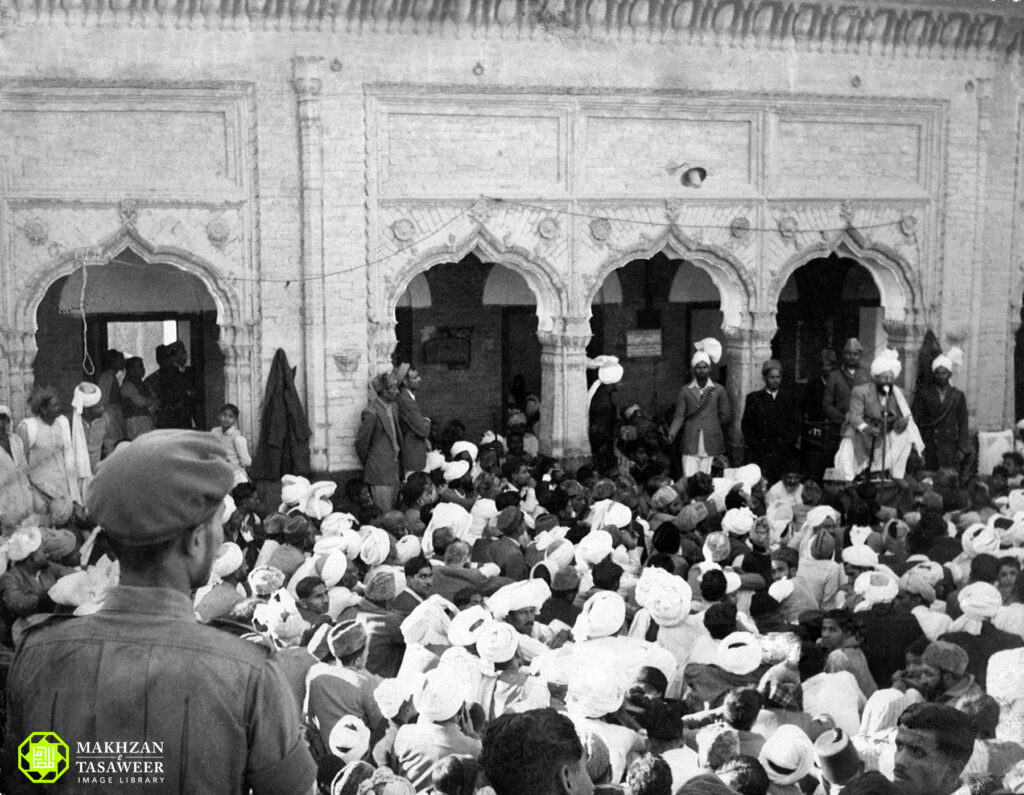Al Fazl, 14 February 1921
Maulvi Muhammad Ismail Sahib
Hazrat Khalifatul Masih II[ra], while explaining Surah al-Nur of the Holy Quran in his dars [sermon], said that this chapter contains the method of moral and spiritual improvement for Muslims and highlights the means through which mutual unity can be achieved. Members of our Jamaat should follow this guidance and obtain satisfaction in this world and the Hereafter.

Hazrat Khalifatul Masih explained [that the verse]:
اِنَّ الَّذِيۡنَ يُحِبُّوۡنَ اَنۡ تَشِيۡعَ الۡفَاحِشَةُ فِي الَّذِيۡنَ اٰمَنُوۡا
[“Those who love that immorality should spread among the believers” (Surah al-Nur, Ch.24: V.20)], contains a very important point of ilm al-Nafs [psychology] and [the last words of the same verse]:
وَ اللّٰهُ يَعۡلَمُ وَ اَنۡتُمۡ لَا تَعۡلَمُوۡنَ
[“And Allah knows, and you know not”], elucidate that this knowledge will advance at some time in future. Consequently, special emphasis is being laid on psychology in this century.
Remarkably, the Holy Quran, which is the word of God, presented guidance based on this knowledge 1,400 years ago from today, whereas the people of Europe are not even fully aware of its fundamentals yet.
Always keep in mind that if people of a nation are frequently blamed for a vice, it often spreads in that nation like wildfire. When the names of a great number of people are mentioned openly that such and such individuals are ingrained in a particular sin, some people can take it as a trivial matter and not try to protect themselves from it anymore.
Hence, the first method mentioned in this surah for the moral and spiritual elevation of Muslims is to stop accusing each other of any vice. Consequently, this vice will disappear from that nation in a short period of time.
Accusing someone of adultery is forbidden to the extent that even if a person sees someone committing adultery with their own eyes, or if another individual accompanies a person seeing it, or even if three people see someone committing adultery, it is still not permissible for this accusation to be made against someone. Consequently, this sin will no longer remain in that nation.
Once, Hazrat Khalifatul Masih Ira presented a very fine piece of wisdom in his dars of the Holy Quran. [He said] that one harm caused by accusing someone of any sin is that when it is made public about a boy or a girl of a particular family that they are immodest, then those who are prone to evil are encouraged to establish illicit relationships with them. Then even if they never indulged in sin, they could be induced into committing wrong deeds. It is thus very important to avoid making such accusations.
I [head of the Tarbiyat Department] draw the attention of our friends towards this word of wisdom and desire that a man of God rises from every Ahmadi town and promises that he will surely refrain from making such accusations in future and whenever any ill-natured person wishes to express such a thing about any of our sisters or brothers, he will stop him immediately and say that he does not wish to listen to it because it is a lie.
Then, he should attach five other men with him, each of whom vows that they will not accuse their brothers of any vice in future. If they will actually find any fault in someone, they will humbly pray for him for 40 days and try to reform their brother behind closed doors. However, they should [promise] that they will avoid spreading evil at any cost. As a result, this will gradually extend to the entire Jamaat and in a short while, we will see a great number of people become models for others by following Surah al-Nur for moral and spiritual improvement.
Hazrat Shah Waliullah Sahibrh said that the Muslims’ decline and downfall started when they stopped following Surah al-Nur. Hazrat Khalifatul Masih I, Maulana Nuruddinra, had a great desire that such people should emerge who follow Surah al-Nur.
Now, Hazrat Khalifatul Masih II[ra] expresses the same desire. Thus, friends should pay heed to this. The names of those individuals who will present themselves for this good deed and become a role model for others will be printed in the Al Fazl newspaper.
(From the Department of Tarbiyat)
(Translated by Al Hakam from the original Urdu in the 14 February 1921 issue of Al Fazl)

